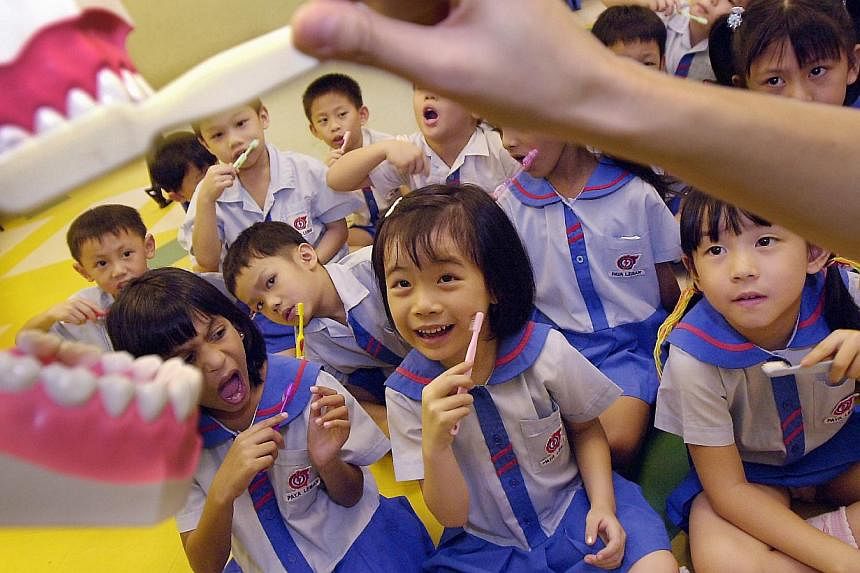Bad teeth is an increasing problem among young children here, with at least one in two having dental caries at the age of seven, a recent report on the oral health of schoolchildren here showed.
The worry is that bad milk teeth can lead to problems with the development of permanent teeth.
Dentists say parents should take their child along when they go for their own dental checkups, even when the child is too young to have teeth. This helps the child become familiar with the surroundings at a dental clinic and the dentist can also look in the child's mouth in a fun and informal way, count how many teeth have erupted and spot any early signs of decay.
Children may need dental visits more often than adults. This is because milk teeth are smaller and have thinner enamel than permanent teeth, so decay can spread quickly.
According to the American Academy of Family Physicians (AAFP), taking care of a child's teeth is important because baby teeth or milk teeth help a child chew food and speak clearly. Milk teeth also hold space so permanent teeth can grow in straight.
Here are eight tips on how to care for a child's milk teeth from the AAFP and the Health Promotion Board:
1. Start at birth and gently wipe the baby's gums with a soft, wet cloth after each feeding.
2. When milk teeth appear, start cleaning them with a soft, child-sized toothbrush twice a day.
3. In children up to four years old, use a small, pea-sized dab of children's fluoride toothpaste to clean the teeth. Do not use too much, as swallowing too much fluoride toothpaste can cause spots on the child's teeth.
4. Consider flossing when all the milk teeth have erupted, usually when the child is around two to three years of age.
5. Do not allow the child to fall asleep with a bottle containing a sweetened liquid other than water.
6. Do not give him a pacifier dipped in anything sweet.
7. Start encouraging him to drink from a cup at six months of age. Whenever juices are offered, let him drink it from a cup.
8. Schedule regular dental visits by the child's first birthday.


